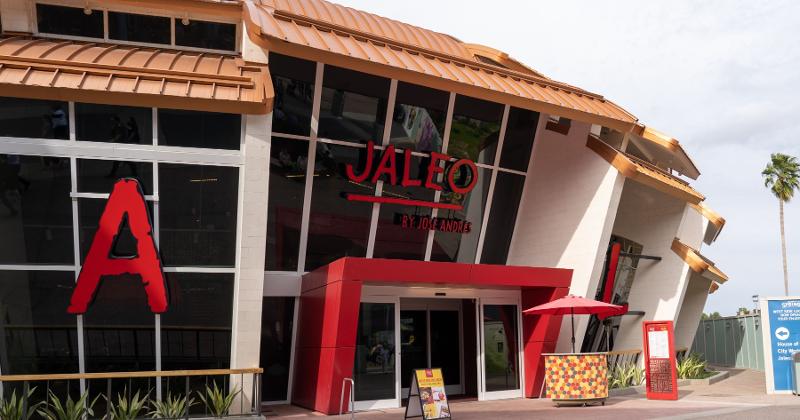
“When things don’t go right, you can think you’re a failure. Or you can change the name of the recipe.”
That’s the approach taken by famed chef, restaurateur, humanitarian and change advocate José Andrés, who gave a rambling-but-inspirational keynote at the National Restaurant Show on Monday in a Q&A with Michelle Korsmo, CEO of the National Restaurant Association.
Andrés, whose Washington, D.C.-based José Andrés Group operates more than 30 restaurants, from the Michelin-starred minibar to the multi-unit Jaleo, told a story about days when he feels like the master of the universe—like a superhero—tossing the perfect Spanish tortilla on live TV. Until the tortilla hits the lights overhead that fall and shatter all over the kitchen/stage, along with the omelet.
He kept filming. The episode became about how to make a dish out of the mess of a Spanish tortilla. “It was one of the best shows I ever did,” he said.
The restaurant industry is hard, said Andrés. “It’s a tough, hard profession.”
But Andrés reminded the audience that the word “restaurant” comes from the word “restore,” and he urged operators to realize the power they have, collectively, as a force for change.
“Restaurants are anchors of hope,” said Andrés. “There are not many professions that unite so many parts of society. … We are very, very powerful. But we need to believe we are one.”
Andrés has long been a change agent, co-founding the World Central Kitchen, which has been feeding people all over the world after emergency events, from earthquake and hurricanes to war. Seven aide workers from the organization were killed earlier this year in Israeli airstrikes while trying to distribute meals in Gaza, a tragedy that halted operations, but temporarily.
For Andrés, that work began when he first joined DC Central Kitchen in the District of Columbia, founded by Robert Egger, who as a bartender saw food being wasted in restaurants. So he started a program that collected food from President Bush’s inaugural events to feed the homeless. That lead to DC Central Kitchen, which began recruiting people that had been previously incarcerated to cook for those who were food insecure. And those workers ended up in restaurants, like those operated by Andrés, with lives changed.
“Wow. That’s when I began to see the power of food,” he said. “That same palate we have to feed the few is what we can put into the service of feeding the many.”
Andrés has also founded the Global Food Institute at George Washington University, which he hopes will create “food policy makers”—not politicians—who will help come up with smart ideas to use the power of food to make cities better.
The political polarization today gets nothing accomplished, with “each side throwing darts, when they should be throwing ideas at each other.”
There were other nuggets from Andrés, who is famous for straying off topic.
He created paella that could be taken to the international space station (an idea resulting from tequila shots), not realizing, however, that in zero gravity the result was thousands of grains of rice floating through the space station.
Still, that same technology was used to feed people in Ukraine during the war.
It’s an example about how everything is connected, especially when it comes to food.
“The future of nations will depend on how they feed themselves,” said Andrés. “Who is feeding America? People like us. The future of the country and this planet is in your hands.”
Members help make our journalism possible. Become a Restaurant Business member today and unlock exclusive benefits, including unlimited access to all of our content. Sign up here.
